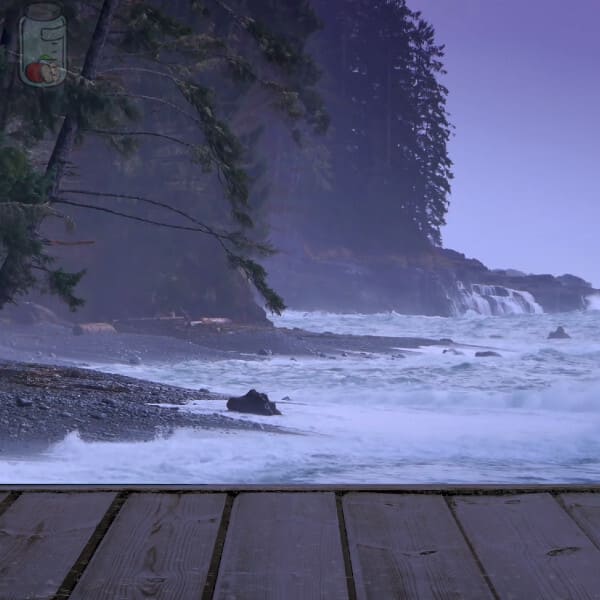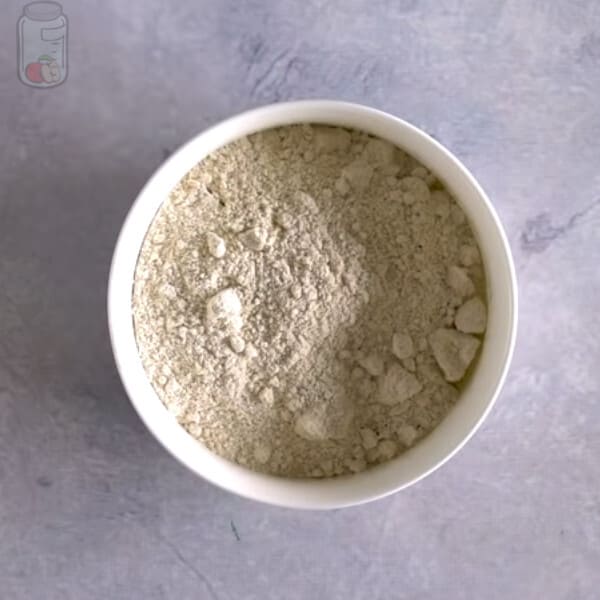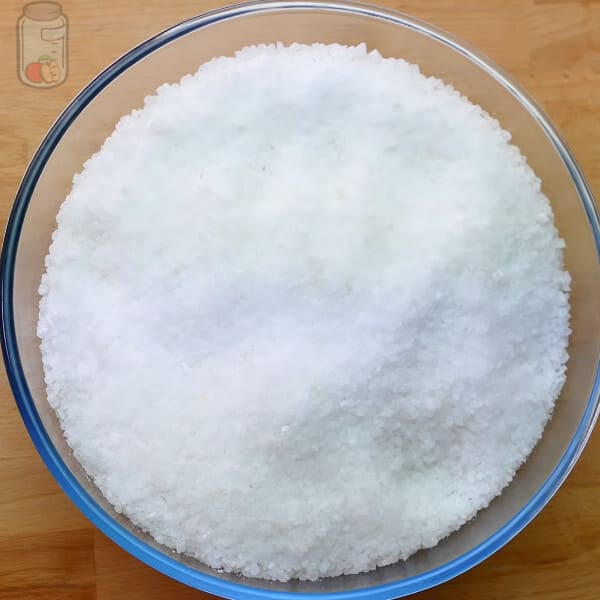The benefits of seawater are many, from helping against respiratory problems to treating diseases or skin scars; you can even use it in cooking, but how is seawater preserved?
Natural seawater can be preserved in a container with a lid at room temperature for two weeks. The commercial version of seawater can also be stored at room temperature for six months.

Just continue with the reading to know the methods of preserving seawater.
How to store seawater?
Seawater has long been used to complement various treatments, such as treatments against respiratory problems or psoriasis. In addition, it accelerates tissue regeneration, effectively treating scars.
For this reason, many people who do not have the sea nearby decide to take little to continue the treatment from the comfort of their homes. But this is not all, since seawater is also used in aquariums.
So, this water is suitable for people with a fish tank with saltwater animals. In addition, seawater is also used in the kitchen, but it is crucial to mention that only processed seawater should be used.
For seawater to be safe for consumption, it must be used by processes that purify and reduce the salt level in the water. Below I will detail the correct way to preserve seawater.
Store natural seawater
Natural seawater, collected directly from the ocean, has several living microorganisms that, when extracted from their natural environment, die and decompose in the water.
This causes seawater to smell bad, causing residues and/or algae. Therefore, the following aspects must be taken into account when storing natural seawater:
- Step 1: Use a container with a lid.
If you are going to store a good amount of water, you can use plastic containers with a lid, and if you want to prevent the water from evaporating, this lid has to be airtight.
In case of preserving a little amount of seawater, I recommend using glass containers with an airtight lid. On the other hand, it is not advisable to use metal containers since they could corrode and contaminate the water.
- Step 2: Store in a dry place.
Place the container in a dry and cool place. You can keep the seawater at room temperature for two weeks.
You can also use the fridge, where it will last between 1 and 2 months.
If you want to extend the shelf life, you can add chlorine to eliminate the microorganisms in the water. Still, you would have to leave the container without a lid for two days to be aerated, changing the components in the natural seawater.
Can natural seawater be frozen? Yes, you could, but to reach the freezing point, you must get –2°C. This way, you could maintain the seawater for a year or more. [1]
Obviously, you could keep only small amounts of seawater in the freezer at home and in freezer-safe containers.
Preserve processed seawater
Seawater can also be found bottled in some shops. In addition, some companies, knowing the benefits of this type of water to the body, sell bottles of processed seawater.
This processed seawater can be of two types:
- Isotonic seawater. In its process, it is mixed with mineral water and with an equivalent of 9% of salt.
- Hypertonic seawater. It is seawater that did not undergo any change in its composition or concentration in mineral salts, so it contains 36% of salt. It is mainly used in cooking as a substitute for common salt and to preserve and thaw fish and shellfish.
As they are already bottled and sealed, you can store them at room temperature in a dark and cool place until the expiration date, but you open them only about six months.
If the place where you live is very hot, you can refrigerate the bottles. If you open the bottle, it will last 8 or 12 months in the fridge.
Can processed seawater be frozen? Yes, but you must transfer them to an airtight container or bag suitable for freezing.
The processed seawater can be kept frozen indefinitely. However, its composition will change as time passes, so it is advisable to keep it up to 2 years.
How do you know if the seawater got bad?
Although because of the amount of salt that seawater contains, it should be unlikely that this water will get bad, its use is not recommended if:
- Seawater has a bad smell.
- On the surface appears an oily substance.
- You see algae.
Why is seawater spoiled?
As stated in a previous point, natural seawater contains microorganisms that, when taken out of their natural environment, die, which causes the water to become contaminated.
Although the amount of salt slows the growth of bacteria, contaminated seawater could prove more counterproductive than beneficial.
In the case of processed seawater, it wouldn’t technically have to spoil.
But it could become contaminated, especially if the material where it is stored is a poor quality plastic since, over time, it can end up deteriorating.
Also, it is essential to mention, like any other liquid, seawater can evaporate, so if you do not have a good container, the amount could gradually decrease.
How long does seawater last?
| Product | Duration |
| Natural seawater at room temperature | 2 weeks |
| Natural seawater in the fridge | 1 – 2 months |
| Natural seawater in the freezer | 1 year |
| Processed seawater (sealed) | Until the expiration date |
| Processed seawater at room temperature (opened) | 6 months |
| Processed seawater in the fridge (opened) | 8 – 12 months |
| Processed seawater in the freezer (opened) | 2 years or more |
What is the best way to preserve seawater?
Seawater can be preserved at room temperature perfectly. However, water extracted directly from the sea, which did not go through any process to remove impurities, does not usually last long.
An alternative would be to refrigerate or freeze it; however, at home, you could preserve only a few amounts of seawater in this way.
In contrast, commercially processed and sold seawater usually lasts quite some time in any condition as long as it is well sealed. It can be at room temperature or in the fridge and practically kept indefinitely in the freezer. If you want to learn how to preserve other types of things, this website has an extensive list of topics that could interest you.
[1] https://www.sciencedirect.com/science/article/abs/pii/0304420396000047






